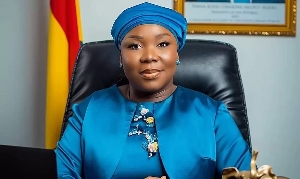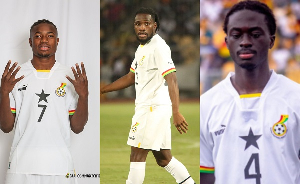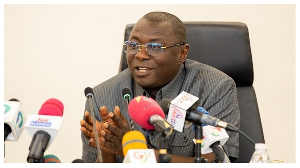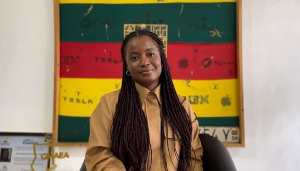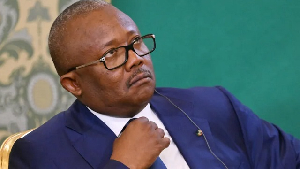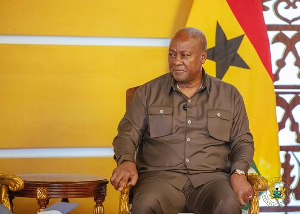Madam Fatimatu Abubakar, the Minister of Information-designate, has called on Ghanaians to fight against the spread of misinformation, disinformation, and propaganda to safeguard the country’s democracy.
She said the sustainability of the country’s democracy and peace hinged on citizens’ ability to make informed choices.
However, the proliferation of false information, deliberate misinformation, campaigns, and insidious propaganda, in recent years, posed a grave threat to these democratic principles, she said.
Speaking at a public forum on “Countering Mis/disinformation and Propaganda Narratives in the 2024 Elections in Ghana,” in Accra, on Wednesday, she urged Ghanaians to safeguard the integrity of the country's democracy.
“As citizens and custodians of democracy, it is incumbent upon us to confront this challenge head-on. The integrity of our election is not merely a matter of political expediency, it is a fundamental pillar upon which our democratic institutions rest. It is the bedrock upon which the voice of the people is heard, and the will of the electorate is expressed.
“We must stand united in our resolve to counter these threats, uphold the principles of truth, transparency, and accountability and ensure that the voice of every Ghanaian is heard,” she said.
The forum, organised by the Media Foundation for West Africa (MFWA), the National Peace Council and the National Commission for Civic Education (NCCE), aimed to promote information hygiene and ecosystem to foster decent political discourse ahead of the December 7 polls.
It was funded by the Foreign, Commonwealth and Development Office and the British Government.
Madam Abubakar reiterated the government’s commitment to combat the threats of false information and protect the integrity of the country’s democracy.
She indicated that over the past few years, the government had implemented several initiatives, including the launch of ghanatoday.gov.gh, to provide citizens with “unfiltered” government information, to combat mis/disinformation.
Furthermore, the Ministry had created a national action plan, or blueprint, to address misinformation and disinformation at their source.
Sulemana Braimah, Executive Director, MFWA said that over the last few years, the continent had witnessed an alarming increase in deliberate attempts to distort its information ecosystem.
A recent publication by the Africa Centre for Strategic Studies disclosed that there were 189 documented disinformation campaigns in Africa in 2023 alone, four times the number recorded in 2022.
Out of the figure, 72 of the campaigns targeted 13 West African countries, representing almost 40 percent of the campaigns that targeted the continent.
Ghana recorded at least seven of these documented campaigns.
Braimah said the situation was likely to get worse in the lead-up to the elections, explaining that “this is because, across the continent and indeed, around the world, elections are seen to provide fertile grounds for disinformation campaigns.”
He noted that Ghana’s highly polarised political environment, unemployment rate, partisan traditional media and large diaspora population who engaged in political discussions, made it highly susceptible to mis/disinformation campaigns.
“So, we face a challenging situation ahead of this year’s elections,” he said, adding that the situation if not tackled robustly would be dire for the country.
Reverend Dr Ernest Adu-Gyamfi, Chairman, NPC, said misinformation had become a tool used to sway voters and manipulate elections, warning that the problem, if not addressed, could lead to mistrust in public institutions.
He called on Ghanaians to be united against the phenomenon as well as the country’s democracy.
Kathleen Addy, Chairperson of the NCCE, in a speech read on her behalf, emphasized the need for effective collaboration among all stakeholders to fight the threat.
She also advocated that misinformation and disinformation be included in school curricula to teach children about the canker’s negative impact on the nation.
General News of Friday, 29 March 2024
Source: GNA





